Exploring how to shift control back to communities
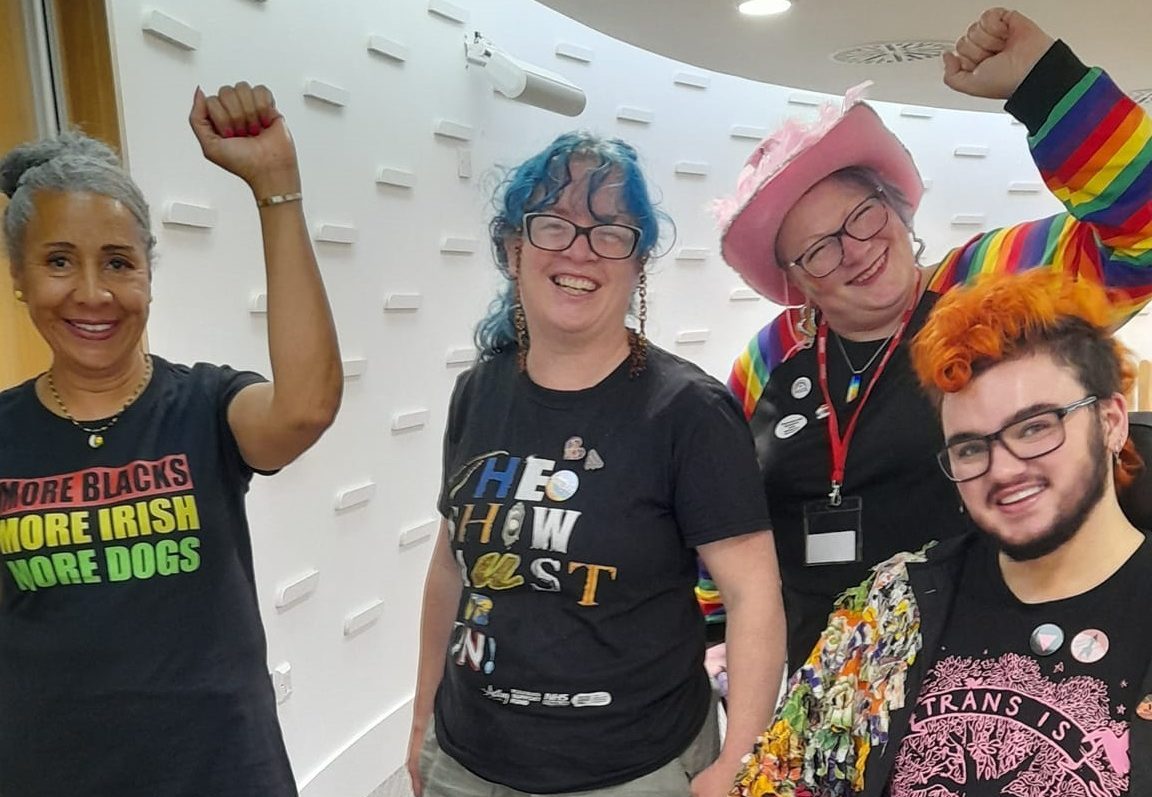
5 February 2024
10 minute read
What if… we could shift power to communities? And what if all those working to do that were connected, and it was easier to see where and how we could work together? That’s the goal of CTRLshift, a network of more than 200 groups working at different scales across the UK, and supported by Transition Together.
Mike Thomas, Transition Together’s Lead link, explained how the network emerged in the aftermath of the Brexit vote, a time of growing polarisation and division in the UK and a wake up call that a strong, connected, positive movement for change wasn’t there. Mike said: “The founders of CTRLshift wanted to have a more positive vision for what the UK could look like. The idea of CTRLShift was to bring together organisations who were looking at this, particularly those who were working with communities, across a range of sectors, like, food growing, alternative economies, coops, renewable energy, sustainable transport and to ask how that could empower communities to have more say over their own future.”
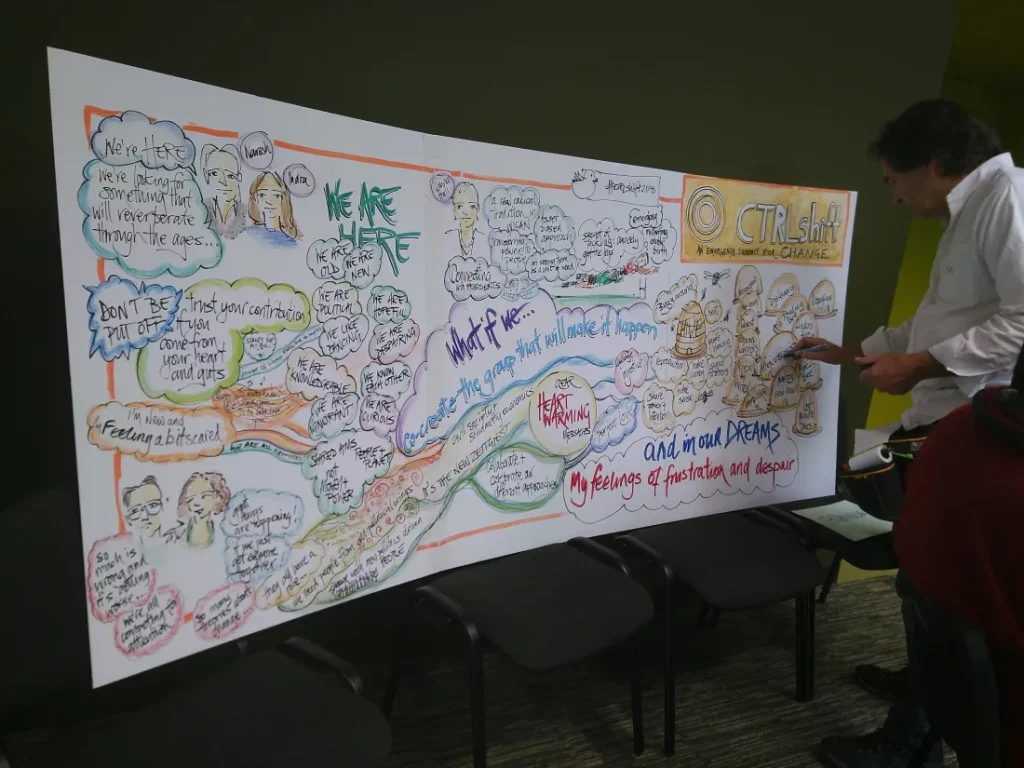
Why the focus on communities? Mike is clear: “Because it was felt the community voice is often lacking in the decisions directly affecting them and because communities often have the answers to some of the most complex problems they are facing themselves. So by building community power and voice, you can have more of an impact and people can feel less that they are having things done to them and more in control of things going on around them and in their communities.”
CTRLShift is about creating space for collaboration and connection – from which different individuals and organisations can see and explore synergies and opportunities. One of the current projects is a survey of 200 members’ priorities, skills and areas of work. It also seeks to connect people at different levels of scale, Mike explained: “So organisations at a national level can be plugged in to people doing activity at more regional and local levels and individuals in communities, to build more powerful networks of support for activities that are happening within and between communities.”
Two summits were held, in Wigan in 2018, and Stoke in 2019, the locations deliberately chosen as areas which had a prosperous past, but where now many people felt left behind. It brought together a local audience with national organisations exploring new ways to build community power.
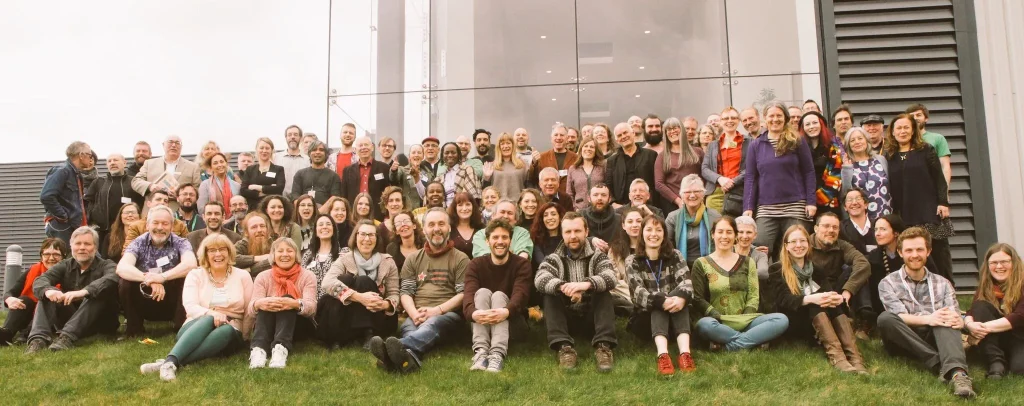
Kate Macdonald attended the summits. She was running Timebank Hull and East Riding. Finding different ways for people to connect, share skills, contribute and get help, she had found “A way in to thinking about wider economy – how we unlearn that transactional mindset and find others ways to connect, to be together in a different way,” she said.
“Community organisations are working away to try and make things better, but they are just dealing with the symptoms, we just keep doing the same thing. For me, I wanted to experiment with how we can start to feel the bigger system we are part of and our piece of the jigsaw.”
To connect these national conversations with what worked on the ground, CTRLShift allocated small grants to prototype different, innovative ways to build community power, and Kate proposed one in Hull. Along with projects in Wandsworth and Bristol, these were experiments, in which not everything will succeed, but there is valuable learning in that too.
In Hull, “It was very much about people coming together and people exploring issues in the city but through constellations,” said Kate. For example, in one diverse neighbourhood, people considered the impact of a homeless shelter opening through a systemic constellation process. Different people in the workshop took on to represent different parts of the system at play, and even the part of an institution or nature could be brought into the discussion.
The approach unearthed how social changes felt for different people involved, allowed people to see who or what was being excluded from the discussion and revealed how these were all part of bigger systems which connected everyone and everything involved. It was a deep and profound experience, says Kate: “There is something about the experience of being within the system and seeing all the factors,” she reflected, “you can see how the whole system moves and shifts when you intervene.”
“We were already well networked, but it feels like there is much more interaction between people who met there,” said Kate. That interaction, the trust and relationships built as a result, has led to collaboration on bigger and more resourced projects, working with the University of Hull Ideas Fund and the council to unlock many initiatives and a bigger conversation about how we shift things as a whole city.
The Bristol project meanwhile, was inspired by an Indian model of neighbourhood parliaments, with city and regional networks where they could converge and connect with public bodies and business organisations. What would that look like in a UK context?
The Bristol prototype started to build connections between really small-scale projects – realising that often lots of people are working for change in their own neighbourhood, but don’t necessarily have the time or awareness to connect to what’s going on elsewhere. They found they were able to support local organising by plugging individuals and groups into some of the skills and resources of the wider CTRLshift network. They ran workshops and training, through which new connections came. Thanks to additional funding secured to build on the initial work they were able to spark new street-level activity with a micro-grant scheme – a key criteria for projects was that neighbours came together to agree them.
One of the group, Carolina de Oliveira said they learnt a lot, even if their plans for neighbourhood parliaments didn’t emerge as they expected. “So much is built on relationships and understanding what’s already happening there. That takes a long time to build and understand but absolutely vital if we want it to be community-led. It doesn’t work for people to parachute in with great ideas.”
Early on the initial prototypes began meeting for support and a community of practice has grown from this. Carolina said: “It’s a way of connecting people who are working in their own communities, we want to find other ways of supporting that so it becomes a mycelium network across the UK so they can support and deepen that work.” In this circle too, they discovered “the importance of relationship and stepping out of a role-based way of showing up. You need to show up as a whole human being to be able to have that connection, to be able to support everything else you want to do.”
In 2023, two new prototype projects were funded to extend this exploration of new ways to build community power. Mike Riddell of the Stoke Model joined this community of practice, and for him, these connections have been as valuable as the seed funding. When you are trying to build new ways of doing things, “you spend a lot of time in your own head, it’s very lonely,” he said. Joining the community of practice has been “very refreshing and great feedback for me too, it’s very affirming.”
“These are people i’m going to work with for a while,” Mike added, “so you end up with a network that becomes an opportunity to do business together.”
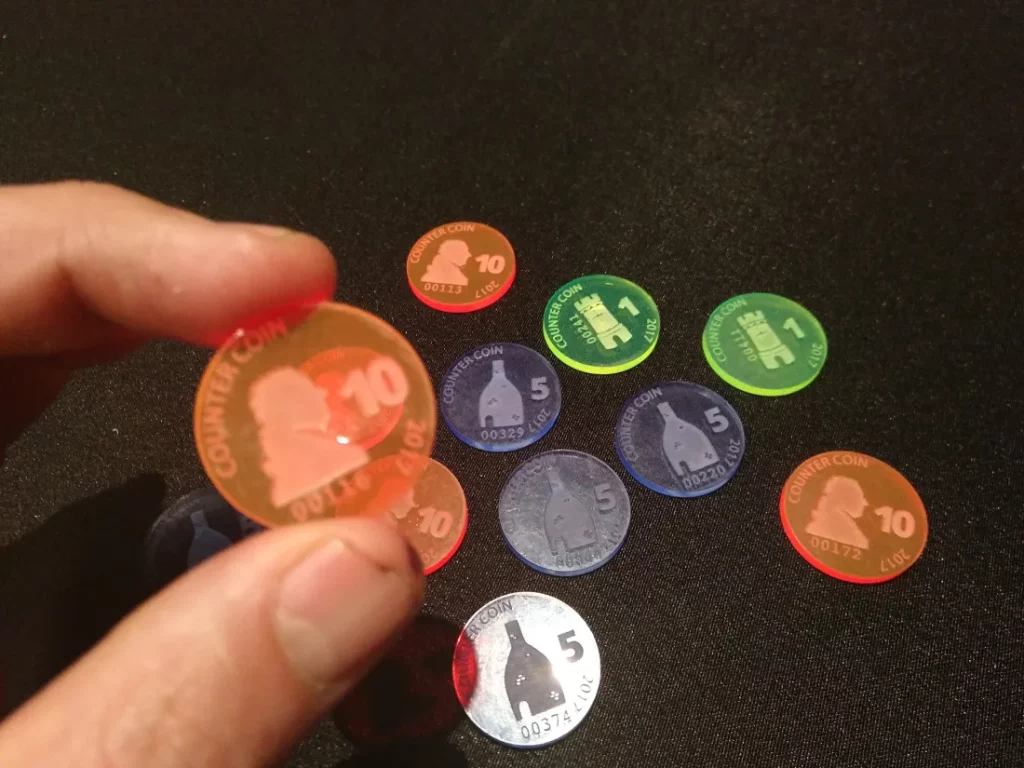
Mike is working with others in Stoke-on-Trent to turn wasted resources into wealth. Their local community currency, the Stoke Pound, has been given to volunteers in return for the hours they contribute, and can be ‘cashed in’ where businesses have slack capacity that would otherwise not be used – like empty seats at Portvale football matches. An online platform manages the transactions – and gives visibility to these resources which previously didn’t count.
Mike hopes other businesses, public sector and community organisations will come on board and is sharing the model with other communities, including Doncaster Pitcoin, Coalville Quid and Droylsden Dollar.
The second new prototype was in Derby, following the city council’s adoption of a new Socio-Economic Duty – or poverty busting law, as campaigner Vanessa Boon describes it.
Linking with many local groups, they supported people bearing the brunt of the cost of living crisis to go to the Council’s meetings, and ask a public question. Often these were hard-hitting – bringing the human impact of policy and practice to the forefront. So instead of an abstract discussion about reducing council tax arrears, councillors were confronted with personal stories of how bailiffs arriving were impacting women experiencing domestic violence or coercive control.
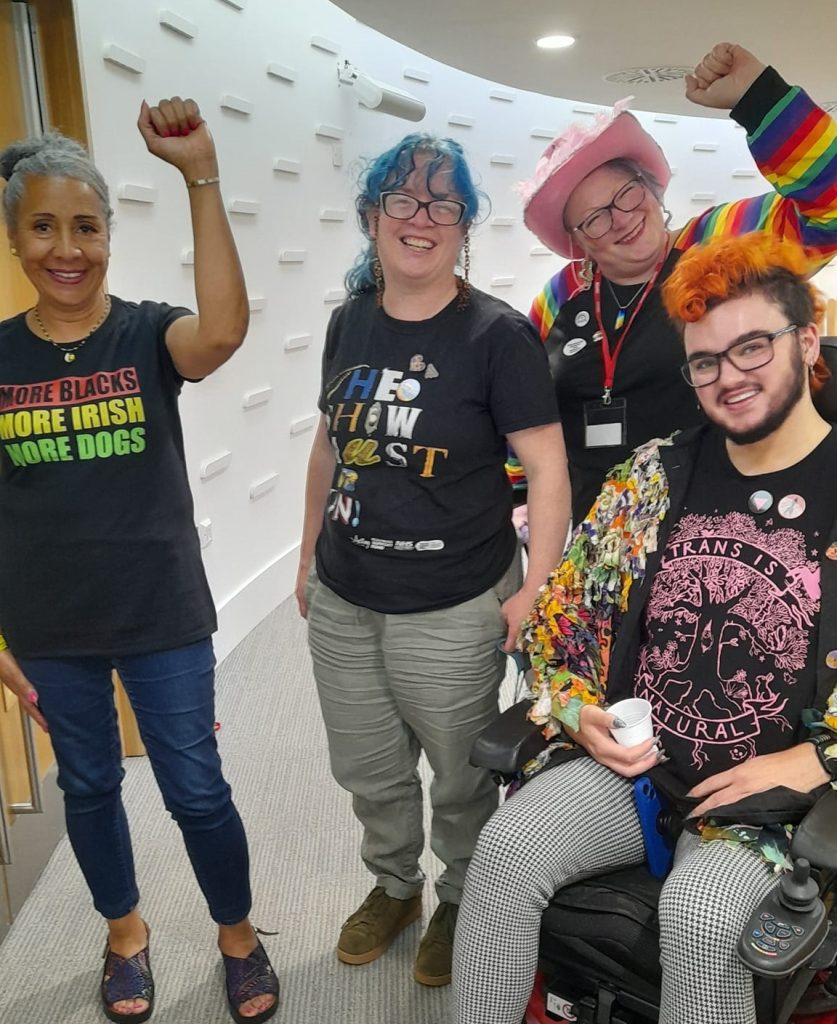
Vanessa described how this shifted power all involved: “Councillors are shocked to hear what’s happening in their watch. They have recognised these people have expertise and knowledge they don’t have.” For participants they coached and supported, asking a scrutiny question in a public meeting is a huge step and has given them a hunger to do more. She added: “I definitely see growing confidence to speak up and huge change in their participation in local politics, most felt they were passively on the receiving end of council decisions, now they are asking scrutinising questions of local council.”
The project has helped communities challenge lack of access to dentists, growth of betting shops and funeral poverty, highlighting how the council’s own socio-economic duty can be used as leverage.
The prototype funding has given them the capacity to connect small grassroots projects across Derby, and now they are bringing participants together in creative campaigns, a picnic against poverty and a Detroit soup-style microfunding event. “These are heavy issues and life experiences – we need that heaviness, but also need to offer something lively and uplifting to help keep us going…because it’s slow work for very incremental process.”
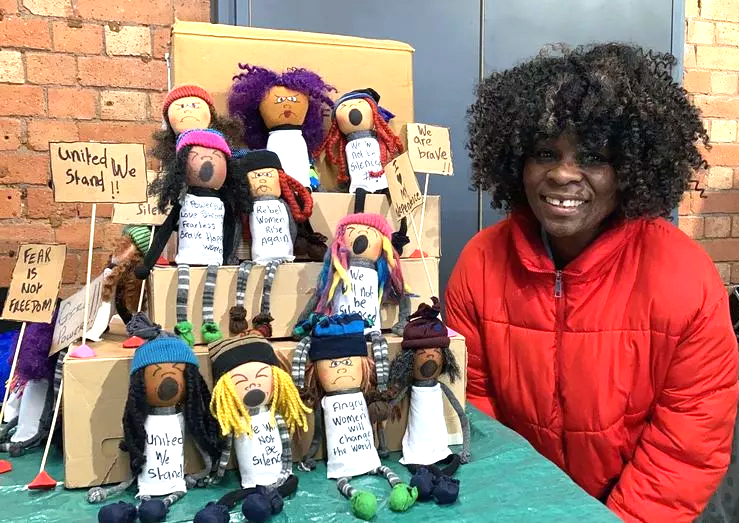
CTRLshift is currently seeking to fund another round of projects exploring innovative approaches to shifting power, with up to £5,000 to support each. Find out more here and apply by 19 February.
Kate Macdonald believes it’s a chance to experiment, as they did in Hull, and see what could emerge: “We need to do things differently. We really need to reconnect to each other and the system that we are part of. We need to pay attention to the edges, to the connections, the interlinking, that’s where things happen.”
For more information: https://ctrlshift.org.uk/